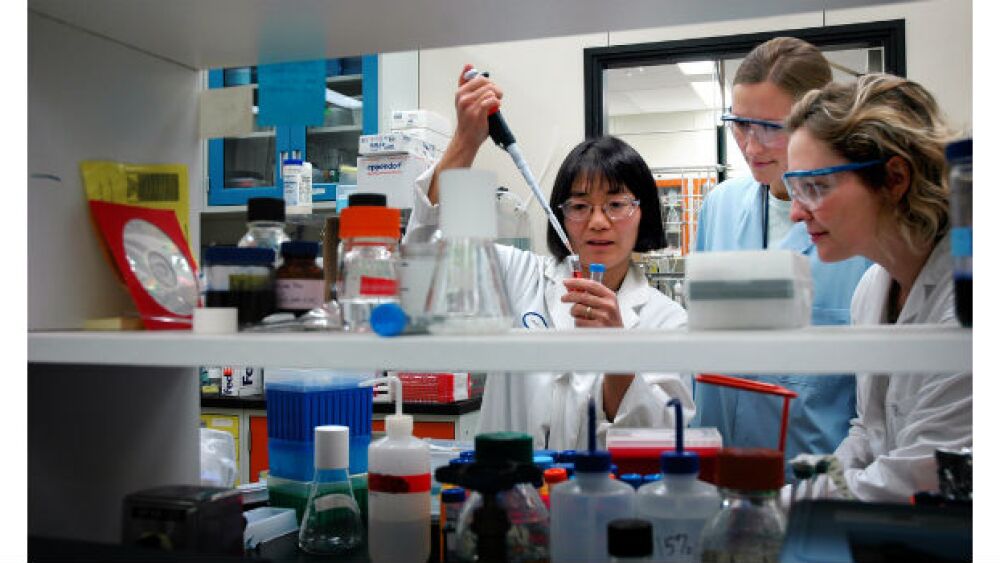Here is a look at the life science companies viewed as the most innovative in the world.
Fast Company recently published The World’s 50 Most Innovative Companies 2018, topping off its edition of the top 350 most innovative companies. Let’s look at the life science companies that made the list.
#1. AliveCor. Ranking 20th on the list, AliveCor developed a product, which has been cleared by the U.S. Food and Drug Administration (FDA), that can take EKG readings on a smartphone. The device, called KardiaMobile, is priced at $99 and uses a fingertip pad or a readout from the Apple Watch, to record an EKG in only 30 seconds.
“At core,” company chief executive officer, Vic Gundotra, told Fast Company, “we are an AI company disguised as a medical device company.”
Fast Company notes, “In addition, AliveCor has partnered with Columbia and other top medical schools on clinical trials to see if its devices can identify even more lifesaving signals in the EKG, including early warning signs of long QT syndrome, a leading cause of sudden death in younger people.”
#2. Novartis. Ranking 21st, the list cites leadership in immuno-oncology as its biggest innovation, specifically its August 2017 launch of Kymriah, its CAR-T therapeutic for relapsed or resistant B-cell acute lymphoblastic leukemia. The company, with partners at the University of Pennsylvania, are working to develop CAR-T for other blood cancers in addition to solid tumors.
“We want to take on the toughest problems,” said Vasant Narasimhan, the company’s chief executive officer, to Fast Company. “Our overall vision is a world where no child has to die from B-cell cancer.”
#3. OneOme. Ranking 22nd, OneOme was established by Invenshure and Mayo Clinic in 2017 to provide a comprehensive, cost-effective pharmacogenomics solution integrated into patients’ clinical care. Its key product is the RightMed comprehensive test, which is a genetic test doctors can order that predicts how a patient’s DNA and current prescriptions might affect their response to medications.
“Our mission was to have the most comprehensive test,” Paul Owen, OneOme’s chief executive officer, told Fast Company. “Because we can take care of a breadth of indications, we’ve had significant success bringing pharmacogenomics into the health system.”
Since its launch, the $349 test has been ordered at more than 550 hospitals and clinics from 22 countries.
Other companies that made the overall list from the biotech sector, but not the overall top 50 list, included:
#4. GE Healthcare. Fast Company cites GE Healthcare’s new mammography system to detect breast cancer as the primary reason it made the list. “GE tasked a team of women at its design lab outside Paris with reinventing the mammogram experience, and they came up with Senographe Pristina, a 3D mammography system that gives patients a remote control to adjust the amount of compression used during an exam.”
#5. Syapse. Headquartered in San Francisco, Syapse offers the Syapse Data Sharing Network, a hub for physicians from multiple healthcare systems to pool their collective experiences. It integrates anonymized electronic health records, laboratory reports and DNA sequencing data. The network is currently being used by Utah’s Intermountain Healthcare, Detroit’s Henry Ford Health System, Colorado’s Catholic Health Initiatives, and Aurora Health Care in Milwaukee.
#6. Sophia Genetics. Based in Switzerland, Sophia uses AI-based technology to develop genomics research. Fast Company writes, “In 2017, Sophia Genetics entered the field of liquid biopsies, with an app that uses Sophia AI to interpret circulator tumor DNA and tumor cells in blood, urine, cerebral spinal fluid.”
#7. Spark Therapeutics. In December 2017, Spark and its partner Pfizer published interim data from its Phase I/II clinical trial of a gene therapy for hemophilia B in The New England Journal of Medicine. Its Luxturna was approved in December 2017, making it the first biotech to have a gene therapy for an inherited disorder, in this case a congenital eye disease that causes blindness.
#8. Biogen. This Cambridge, Massachusetts-based company is a leader in multiple sclerosis, and spinal muscular atrophy. In recent years, it has turned its attention to Alzheimer’s and other neurodegenerative diseases. Much attention is focused on its aducanumab for Alzheimer’s disease, although data isn’t expected until about 2020.
#9. Synthego. Based in Redwood City, California, Synthego has automated processes to developing synthetic DNA. Fast Company writes, “Through intensive automation, Synthego has cut the cost of synthetic guide RNA by up to 80 percent and drastically sped up production—customers can place an online order and get their package within days instead of the weeks it might take to build it themselves.”
#10. WuXi NextCode. This company was formed in 2015 when WuXi AppTec, a Chinese company, bought NextCODE, a bioinformatics spinout from deCODE Genomics. The company is the leading platform for storing, sharing and interpreting genomic data sets.
#11. Ginkgo Bioworks. This company was recognized by Forbes as one of 25 U.S. companies likely to hit a valuation of $1 billion or more. Ginkgo engineers bacteria and other microbes for commercial uses. Its three primary areas are cultured ingredients, which are used in perfumes, food and cosmetics; strain improvement, where fermentation is used in bioindustrial applications; and enzymes, which are used for numerous applications ranging from making cheese to pharmaceuticals to stonewashed jeans.





